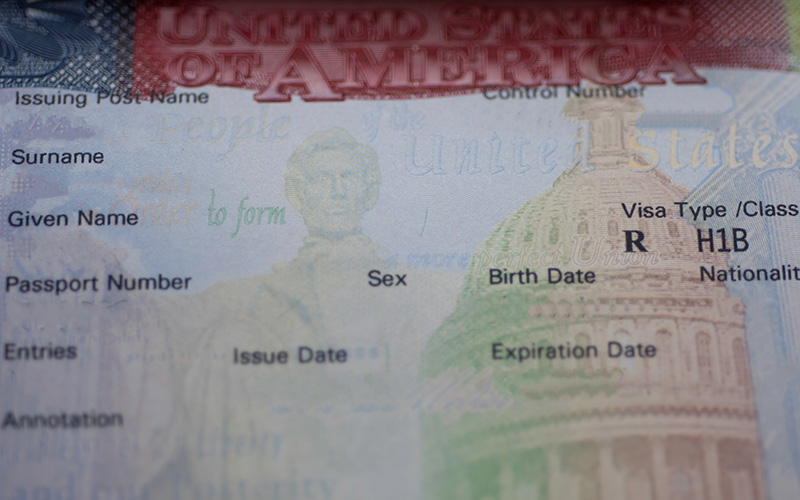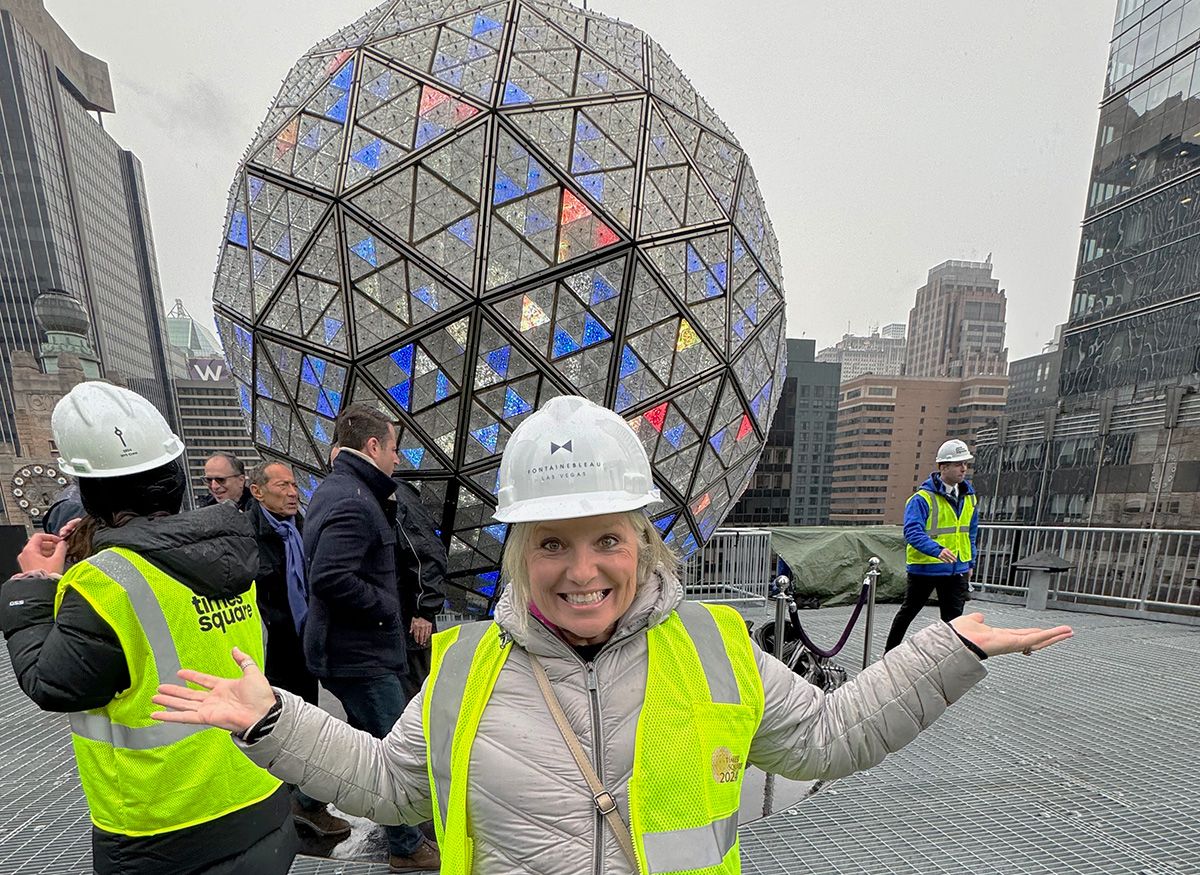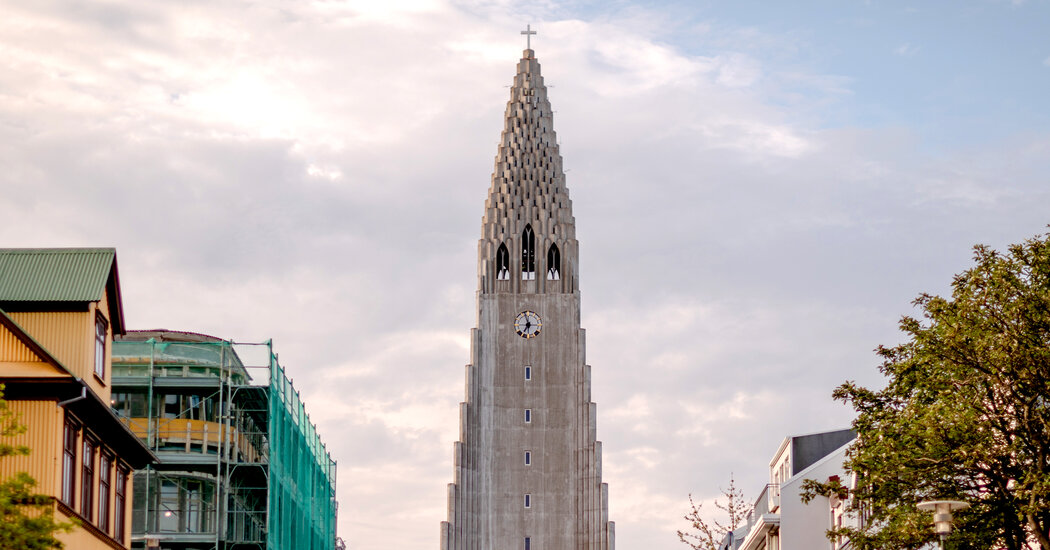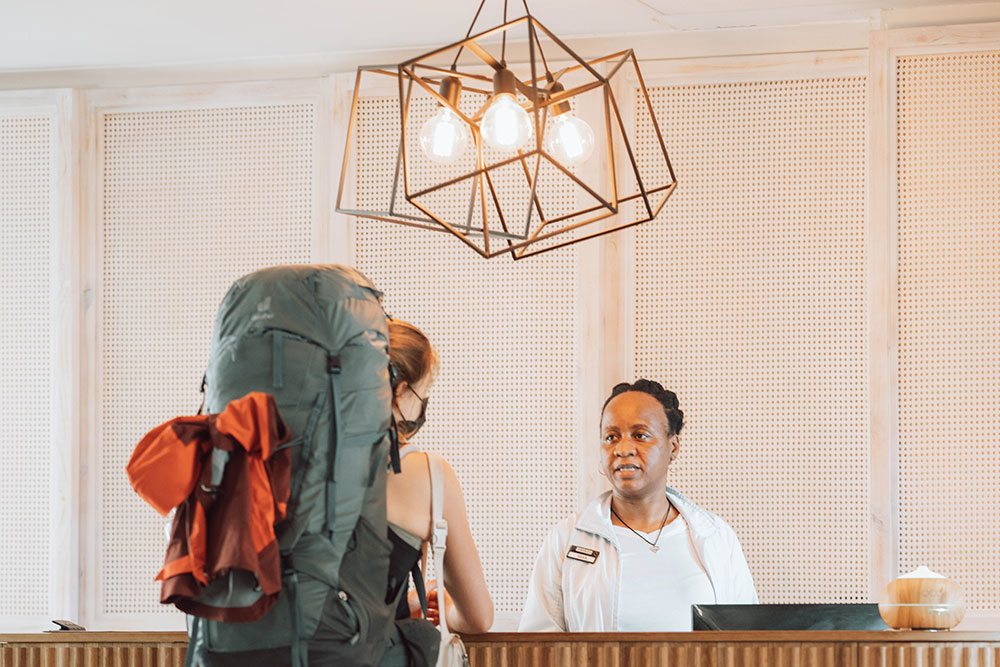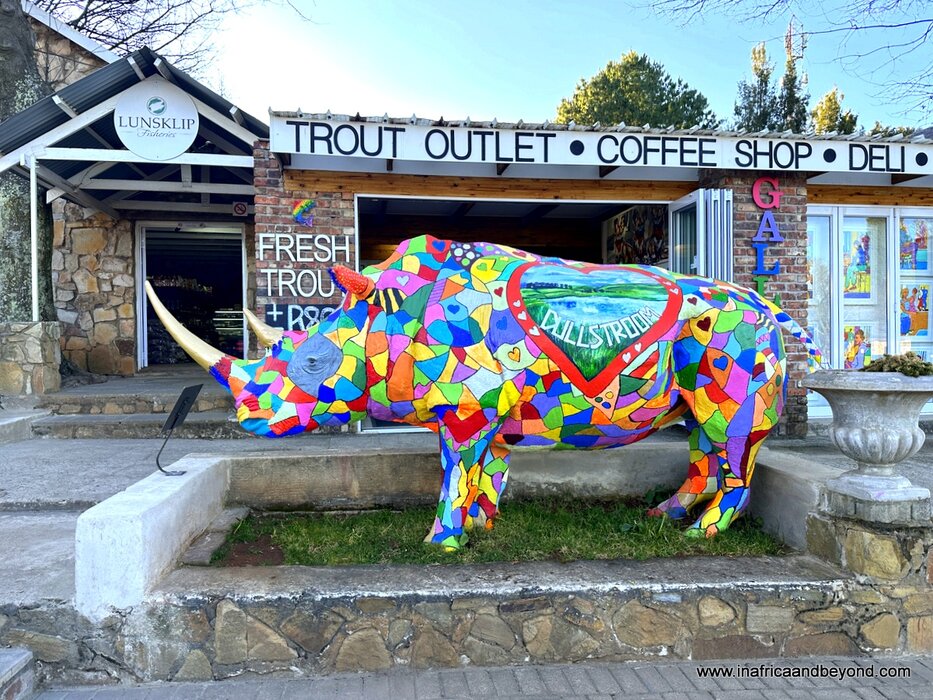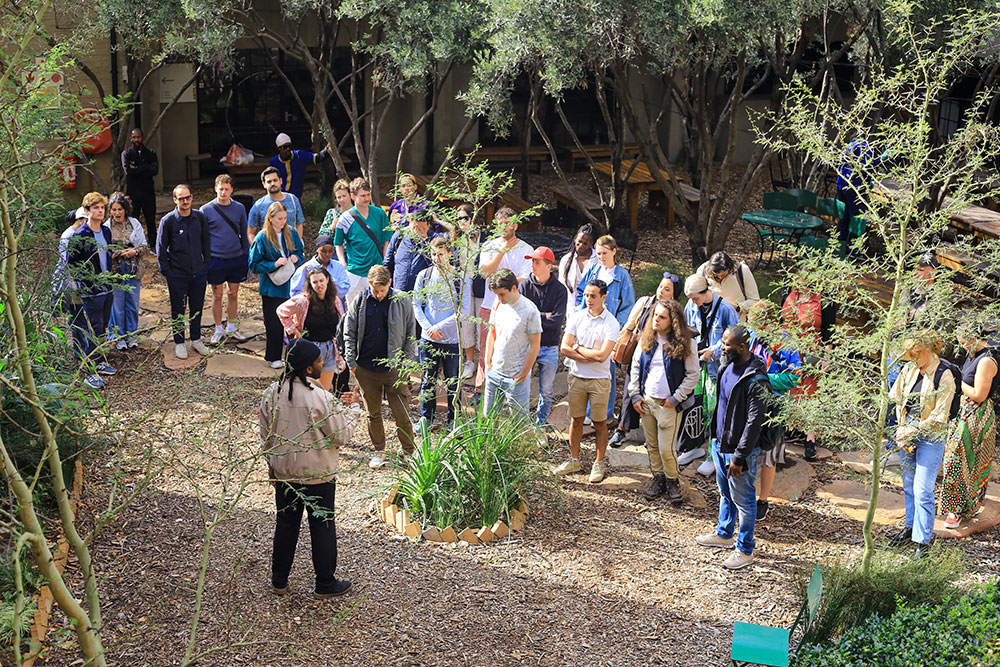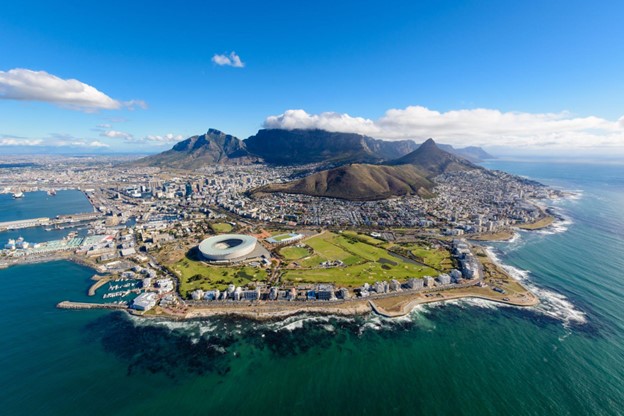
Enjoy A Digital Nomad Lifestyle In Cape Town
Demand for those seeking the lifestyle of the digital nomad is on the rise. If you’re not familiar with the term, being a digital nomad means working remotely while living in another country for an extended period of time. Living this way allows you to see the world outside your home country while still supporting yourself financially along the way. In theory – your job is wherever the WiFi is.
Among the best places to be a digital nomad is Cape Town. Besides being full of natural beauty and cultural heritage, Cape Town also features relatively low living costs compared to other major cities, meaning that the money you earn from remote work goes a long way here.
In this article, we’ll walk you through how you can make the most of your stay in South Africa’s beautiful capital city as a digital nomad.
View from the bus
Set up a suitable home base
While many have a romantic notion of digital nomadism that involves typing on a laptop at the beach while sipping a drink, chances are you’ll spend a good chunk of your time at home. So it’s essential to set up your base of operations in a way that makes you want to spend time working there. If you’re travelling with a handful of friends in similar set-ups, why not make up your own centralised workspace? Whether it’s a spare room in someone’s accommodation or the island countertop in your kitchen, set up a base you know is a productive place to work.
Try to stimulate the office environment by purchasing an automatic coffee machine to get your brain in the right mindset. The region’s coffee is among the best in the world, and there’s nothing better than a hot cup to start the day or keep you going during a long session of work. Make sure you have good, natural lighting, and keep distractions to a minimum.
Depending on the funding allocated by your company, you might even be able to hire out a desk in a larger office or get a subscription to a co-working space, such as WeWork. If you don’t have the space or privacy to set up your own temporary office, choose a quiet cafe or library where you can comfortably work during your normal hours.
You should also secure a reliable internet router, a laptop and a webcam to improve the quality of your digital meetings. Whether you’re staying in an upmarket hotel or an Airbnb, make sure to choose accommodation with as many amenities as possible, such as a desk and food preparation area. By ensuring that your home base has everything you need, you can do your best work and spend your free time exploring all that Cape Town has to offer.

Sea Street Coffee Lounge
Learn the local languages
To truly make the most out of your experience as a digital nomad in Cape Town (or anywhere else, for that matter), you need to familiarise yourself with the local tongue. In Cape Town, there are three main languages used: Afrikaans, English and Xhosa.
Afrikaans is the most widely spoken language in the city. Over a third of the locals speak it as their main language, while many more are fluent or have some degree of competency. Afrikaans is a daughter language of Dutch which has been influenced by other languages over time, so it’s fairly easy for an English speaker to pick up.
Another of Cape Town’s main languages is Xhosa, or isiXhosa, a Bantu language that’s primarily spoken by the Cape Province region’s population. While it’ll take slightly more time to learn than Afrikaans, having some degree of knowledge in Xhosa will be a tremendous help if you’re looking to settle in and integrate with the locals.
And then there’s English, which is mainly spoken in the southern suburbs and is the language of instruction in most Cape Town schools. As with any other place where English is spoken, Cape Town has its own distinctive version of the language, with a unique vocabulary and idioms.
Learning languages opens many doors and allows you to truly immerse yourself in the local culture. Familiarise yourself with all the different languages spoken in Cape Town to make your stay a memorable one. However, if learning new languages is not your forte, you will manage fine with English alone.
Explore the local attractions
Digital nomadism isn’t all about work. You should make the most of your time in Cape Town by exploring all the region has to see.
Luckily for you, there are countless things to do in and around Cape Town. Start by visiting the big-name attractions like the Cape of Good Hope, Boulders Beach and the Buffelsfontein Game Reserve. While you’re in South Africa, it’s also a good idea to learn more about the country’s complicated history by visiting museums like the Cape Town Diamond Museum, the District Six Museum and the Iziko South African National Museum.
Among the benefits of being a digital nomad is being able to explore a city in greater depth than would be possible as a tourist. Once you’ve explored the main attractions, you can hit up some of the lesser-known sites in Cape Town. These include the Crystal Pools hiking trail, the Silvermine Reservoir and the Elgin Steam Train. If you’re into extreme sports, we highly recommend heading to Signal Hill or Lion’s Head, which are well-known launch sites in the area. Whatever you’re looking for, Cape Town is sure to have it in abundance.

City Sightseeing Cape Town
Take trips to nearby towns
While there’s certainly plenty to do in Cape Town, don’t limit yourself to staying there. Cape Town is part of a province known as the Western Cape, which is the fourth largest in South Africa. Some of the locations mentioned such as Crystal Pools and the Buffelsfontein Game Reserve are located outside Cape Town and are certainly worth taking a day trip to.
However, on your weekends off, why not spend more time in some of the nearby towns? These include Darling, Langebaan, St Helena Bay and Velddrif. By visiting these smaller towns, you can get a taste of a more suburban life and get some rest away from the city after a stint of hard work.
If you’re someone who likes to work hard and play hard but without the confines of a conventional office, digital nomadism could be for you. And there are few better cities to be a digital nomad in than Cape Town. After being named the world’s most liveable city for 2025, there couldn’t be a more perfect time to book a one-way flight.
In this article, we’ve taken you through some key ways to make the most of your stay in South Africa’s capital city. Implement them into your own travel plans to make sure your stay in Cape Town is one you’ll never forget.
So pack your sunscreen and your laptop, and set up camp in Cape Town!

West Coast National Park

Sara Essop is a travel blogger and writer based in South Africa. She writes about family travel and experiences around the world. Although she has been to 50 countries thus far, she especially loves showcasing her beautiful country and is a certified South Africa Specialist.
Publisher: Source link
Latest Posts
-
31 July 2025
-
26 July 2025
-
14 July 2025
-
01 July 2025
-
07 August 2025
-
29 July 2025
-
20 February 2025
-
04 February 2025
Newsletter
Sign up for free and be the first to get notified about new posts.
Get The Best Blog Stories into Your icountox!
Sign up for free and be the first to get notified about new posts.

